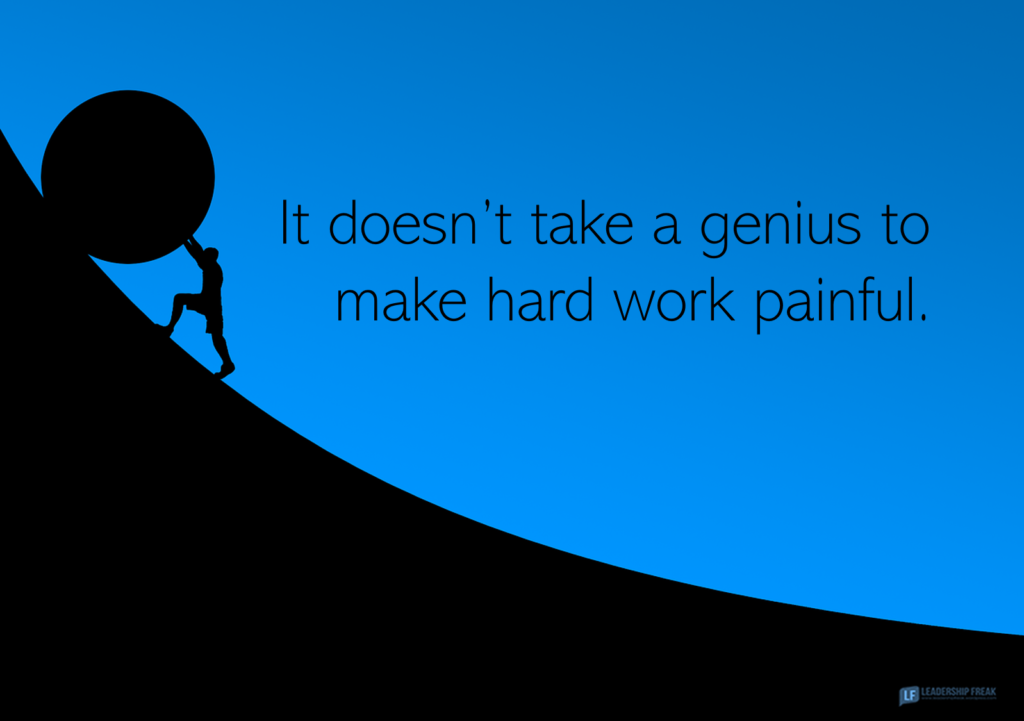In my coaching of leaders, I often suggest asking the questions: What do we (I) need to start doing, stop doing or do differently that would really improve things? Dan Rockwell shares 7 surprising things successful leaders stop doing that make leadership easier.

Originally posted by Dan Rockwell
It doesn’t take a genius to make hard work painful.
Sometimes success is about stopping something.
Don’t…
#1. Stick to your guns no matter what.
Some of the most important priorities in leadership concern choosing things to fight for. You live a small lonely life when you always stick to your guns.
Work as hard to build, strengthen, and restore relationships as you work while sticking to your guns.
#2. Resist authority.
You’re little more than an upset toddler if everything has to go your way. Learn how to disagree and row-with at the same time.
Get out of the boat if you can’t row with the team.
Contrarians lose their seat on the boat when they stop rowing with the team.
Loyalty to mission, vision, and goals sets the foundation to express contrarian ideas.
#3. Live to get more.
Choose contributing more over getting more.
Life based on ‘having’ shrinks and stinks.
If you expect a lot, give a lot more.
#4. Do what you feel.
Bring passion to work, but don’t let emotion control you.
Emotion driven leaders are inconsistent and unpredictable. Display pleasure frequently and displeasure skillfully, for example.
If you don’t feel like doing the right thing, do it anyway.
#5. Let ingratitude pollute your thinking.
Failure to express gratitude is ingratitude.
Constantly looking for things to improve about others is another name for complainer.
#6. Confuse healthy self-love with conceit.
The purpose of self-love is to teach you how to love others.
The universe is indifferent and the world doesn’t revolve around you.
#7. Make feedback feel like accusation.
The only way feedback helps is if recipients believe you have their best interest at heart. Anything less makes feedback an accusation.
What might leaders do to make leadership easier?
What do leaders do to make leadership harder?

Recent Comments